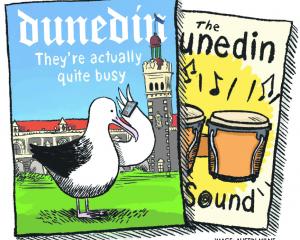Politics in Europe looms as a theme for markets this week.
Craigs Investment Partners broker Chris Timms said European politics would dominate some of the global headlines early this week. Members of Germany's Social Democrats Party (SDP) finished voting on Friday to decide whether to enter a new coalition with the Conservatives led by Angela Merkel.
The positive vote during the weekend meant sentiment becoming supportive towards Europe.
The bigger risk was likely to be the Italian election. Close results would have a volatile effect on markets.
The European Central Bank would hold a monetary policy meeting on Thursday, although no major shift in stance was expected, he said.
``Given the recent volatility and the strong euro, the ECB is likely to wait for evidence of genuine inflationary pressures before making any changes to the asset purchase programme.''
Annual inflation in the euro zone fell to 1.2% in February, the third consecutive monthly decline and the lowest since December 2016, Mr Timms said.
Low inflation came despite economic growth running at close to a decade high in the region. Some of the weakness was due to energy prices falling, although excluding food and energy, inflation remained low at 1%.
The United States February jobs report on Friday would be of significant interest in the US this week, he said.
Markets were expecting 205,000 jobs to have been created and for the unemployment rate to fall to 4% from 4.1%.
Most interest would be on wage indicators. Last month, average hourly earnings increased by 2.9% from a year earlier, comfortably ahead of forecasts for a 2.6% rise and the highest since June 2009.
The highlight in Australia would be the March meeting of the Reserve Bank of Australia set for 4.30pm today.
The December 2017 Australian gross domestic product (GDP) growth figures are due at 1.30pm tomorrow.
``No change is expected to the 1.5% cash rate so the GDP report will likely attract more attention.''
December quarterly economic growth was expected to have remained unchanged from the previous quarter at 0.6% and the annual growth rate was forecast to dip slightly to 2.5% from 2.8%, Mr Timms said.
In New Zealand, the results of the latest GlobalDairyTrade auction would be released early tomorrow.
A fortnight ago, headline prices fell 0.5% while whole milk powder prices had a marginal rise of 0.3%.
Prices had recovered this year from the weakness in late 2017 which should ensure the $6.40 milk payout from Fonterra was secure, he said.
ASB chief economist Nick Tuffley said a key risk to financial markets for the week was for continued falls in sentiment on trade war fears. Many countries were promising to retaliate if the US imposed tariffs on imports.
More protectionist global trade policies would be a mild drag to global economic activity, which could mean longer-term New Zealand dollar yields falling further.
Other New Zealand data out this week included building work put in place, the economic survey of manufacturing and electronic card transactions.
The ASB was forecasting the fourth-quarter volume of building activity to have increased by 3.4%. Residential building was forecast to increase a ``robust'' 2.6%, adding to the previous quarter's 4% rise, Mr Tuffley said.
Non-residential building activity was expected to have lifted 4.6% in the quarter. Capacity constraints in the construction sector might limit the extent of growth in the sector.













